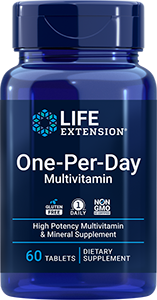Low Intensity Exercise

Does Low Intensity Exercise have Benefits
By Dr. Kristie
Exercise has a number of physical and mental health benefits, but to maximize the benefits of a workout you need to exercise at a moderate intensity or greater.
Lately, there’s been more emphasis on high-intensity interval training, alternating periods of high-intensity exercise with periods of recovery to maximally challenge the cardiovascular system and create an after-burn effect.
With all the emphasis on higher intensity workouts, is there any benefit to exercising at a lower intensity – say, walking at a moderate pace?
Do Low-Intensity Workouts Have Health Benefits?
To get direct cardiovascular benefits, you need to exercise at 55 to 70% of your maximal heart rate or greater. A quick way to approximate your maximal heart rate is to subtract your age from 220. A person who is 30 years old would have a maximum heart rate of 190.
To get an aerobic workout, a 30-year old would need to raise their heart rate to at 104 (55% of 190) or more and sustain it for at least 20 minutes.
It’s also possible to get cardiovascular benefits from a shorter workout but one that’s more intense. The more intense the cardiovascular exercise, the less time you need to do it to get training benefits. So what about exercise that doesn’t quite reach training levels? Does a leisurely walk around the neighborhood have health benefits too?
Products
Low-Intensity Exercise Has Health Benefits Too
You don’t need to gasp for air and have beads of sweat rolling off your forehead to benefit from exercise. Research shows that even low-intensity exercise reduces blood pressure and lowers lipid levels.
One study showed that middle-aged participants who walked 10,000 steps three times a week for eight weeks reduced their LDL-cholesterol level, the type of cholesterol that increases the risk of heart disease. In another study, participants that took part in a 12-week walking program lowered their blood pressure.
In addition, they experienced less stress-related increases in blood pressure after taking part in the program. This bodes well for heart health.
Low-intensity exercise also boosts insulin sensitivity, which means your pancreas doesn’t have to pump out as much insulin to control blood sugar levels. This helps to reduce the risk of metabolic syndrome and type 2 diabetes. In addition, low-intensity exercise burns calories and helps avoid the “sitting too long” syndrome, which is a risk factor for heart disease and premature death.
Low-Intensity Exercise Lowers Cortisol Levels
Moderate and high intensity exercise boosts cortisol levels, especially long-duration cardio. Cortisol is a stress hormone that breaks down muscle protein and contributes to belly fat. It also suppresses the immune system.
Exercising at a low intensity not only doesn’t raise cortisol levels, it actually lowers levels of this stress hormone. That’s a good thing for both mental and physical health.
The Bottom Line?
You’ll get the most cardiovascular benefits from higher intensity exercise, but low-intensity workouts have their place too. On those days when you need a break from your high-intensity routine, take a walk instead. You won’t be wasting your time from a health standpoint.
References:
- Med Sci Sports Exerc. 2008 Jul;40(7):1263-70.
- Biological Research for Nursing (2009) Volume: 11, Issue: 2, Pages: 129-143.
- J Endocrinol Invest. 2008 Jul;31(7):587-91.



